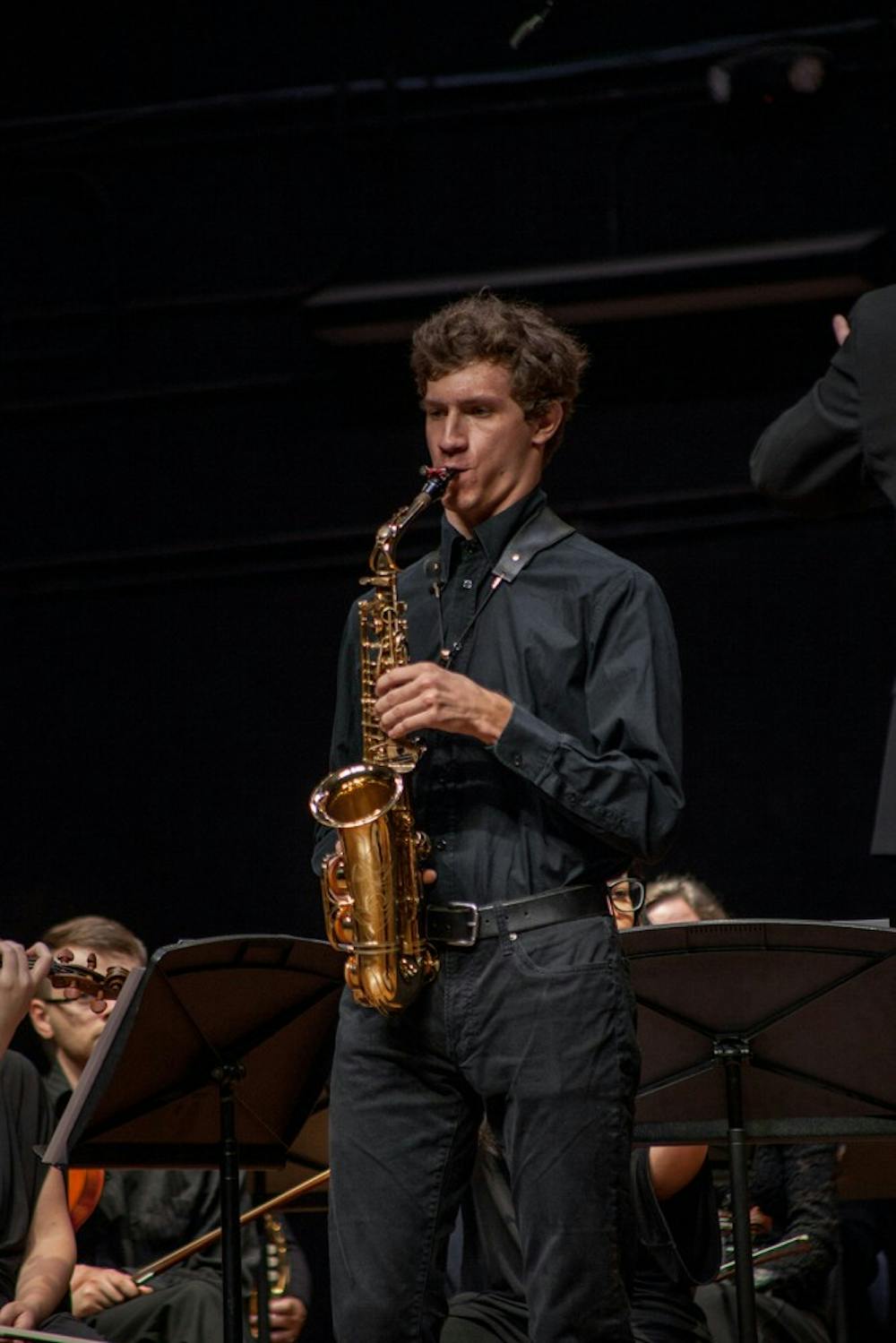The Auburn saxophone quartet will be competing in the North American Saxophone Alliance regional finals at Ole Miss on March 22.
Although the group has only been playing together for less than a year, the group sent in videos for the preliminary round before being selected as one of a handful of groups for the live round.
Nikolai Klotchkov, one of the quartet’s members, will also be competing in the regional solo saxophone competition. Klotchkov is a veteran saxophone player with over 10 years of experience.
“I need to mention that competition is not like what people usually imagine when they hear the word saxophone,” Klotchkov said. “It’s not jazz, not like popular music. It’s classical music.”
Klotchkov, who came to Auburn from Russia to study music, is also an experienced competitor. He added that he thinks it’s important to compete because when only striving for a good grade, there is not enough motivation to really be pushed into excellence.
“When you are competing with people who you know are better — you work harder, and that just benefits not just your competing abilities, but the whole idea of competing and self-motivation and applies to all aspects of life, actually,” Klotchkov said.
He has recently participated in two concerto competitions, one in Auburn and the other at the University of Mobile, competing for the opportunity to play as a soloist with a professional orchestra. He especially enjoyed the opportunity to perform with the orchestra in Mobile, thrilled for the chance to play with a seasoned orchestra under a professional composer.
“It was cool,” Klotchkov said. “You actually sound like the people on all of the recordings that you refer to.”
The greatest improvement of his musical skills, he said, has come from playing in a quartet and the evolution of his technical playing skill. Playing as a soloist means that the piano player will follow him, but playing in a band as an alto saxophone means that his role is co-dependent on the other players.
“In the quartet, you are one-fourth of the music,” Klotchkov said. “You have to play like a soloist, but at the same time, you have to follow and communicate with the other three players.”
As a senior in music performance and interdisciplinary studies, Klotchkov is planning on applying to graduate school. His interdisciplinary degree is a combination of psychology with an emphasis on neuroscience, exercise science and computer science.
“When people hear that combination, they’re like ‘that doesn’t make any sense’,” Klotchkov said.
He plans to use these degrees to study the physiology of musicians, applying science to music. The exercise science component is to understand how the body works and performs.
Klotchkov said science is already applied to sports, and musical performance is the same type of activity. So he thought there was no reason these principles couldn’t be applied to music.
An example of this that he gave would be using sensors to evaluate the biomechanics of a musician’s fingers while playing the saxophone.
The neuroscience aspect is to help understand how the brain works and interacts with music in a hope that it results in improved methods of teaching performance.
“Computer science is the tool to analyze data and use computational power to visualize results, build models and maybe produce some software as a result of research,” Klotchkov said.
His current research project is a joint study with the department of communication disorders to explore the movements of the tongue while playing the saxophone. He may even be presenting results from this research at the conference where he will be competing in March.
Do you like this story? The Plainsman doesn't accept money from tuition or student fees, and we don't charge a subscription fee. But you can donate to support The Plainsman.





